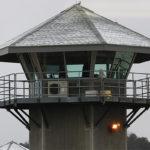KINGSTON – In just the first three weeks, the Kingston Organics program collected over one ton of food scraps. Kingston Organics Program Phase 1, a free and voluntary year-round food waste diversion program for all City of Kingston residents, officially launched on July 10.
A proactive approach to solid waste management, the Kingston Organics program currently has 601 public participants, and registration remains open at Engage Kingston. Once registered, participants are provided a welcome packet complete with instructional information, a map, lock code, and FAQ, and are then able to utilize one of the 11 food scrap drop-off locations across Kingston.
“We are thrilled to see the interest and enthusiasm for this program so far,” said Mayor Steven Noble. “We are already seeing the tangible results that municipal organics programs like this can produce. I encourage any Kingston residents who are interested in composting to sign up and join this program.”
One critical component of the public food scraps collection system is that the bins at the drop-off locations are locked. Registered participants receive the code for their location, and only those who have registered have access. Registration is free and accessible to all, in person, online, or over the phone. Locking the bins has been proven to be a crucial component to success for several reasons:
- Registration (keeping track of participation) enables the city to design and adapt the existing program and future phases for the appropriate capacity.
- Registration allows the program manager to communicate with participants, which wouldn’t be possible without a means of contact through registration.
- Locking the system prevents any passersby from dropping in contaminants and ensures that every single user has received an informational packet with acceptable items. This is the only way for the city to prevent contamination, which could jeopardize the program’s success.
- Locking the system also prevents nuisance animals from entering the sheds and totes.
Julie Noble, the City of Kingston’s Environmental Education & Sustainability Coordinator said, “This program has already grown so much faster than we could’ve expected. We have had an overwhelmingly positive response from the participants, have seen virtually no contamination with the system we established, and have had no nuisance animals or pests. The tonnage is trending upwards, and with a $90 savings per ton, the savings, both financial, but also greenhouse gas emissions savings, will continue to grow.”
In addition to the public drop-off sites, the City has launched food scraps collection in all 10 public municipal buildings. The city’s, community centers, and municipal office buildings including City Hall have implemented food scrap stations, which serve all 300-plus city staff as well as visitors.
Food scraps gathered by the Kingston Organics program are transported to a local composting facility for processing, diverting the material from being trucked hundreds of miles away to Seneca Meadows Landfill with the remainder of the municipal solid waste.
That, said the mayor, saves Kingston tipping fees and reduces greenhouse gas emissions associated with trucking. Reducing the amount of food waste that goes to the landfills can save hundreds of thousands of dollars in municipal garbage transportation/tipping fees.
In 2020 alone, close to eight tons (15,500 pounds) of food waste from City of Kingston residents and small businesses was transported daily to the Seneca Meadows Landfill, a 480-mile, 7.5-hour round trip.








